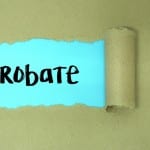Estate Planning
Estate Planning is the process of determining how your wealth and assets should be transferred to the heirs of your choice: your children, grandchildren, friends, families, charitable causes, etc. and then deciding which legal tools and structures to use to best meet your estate planning goals.
Estate planning is not simply reducing or eliminating taxes and avoiding probate. Only after establishing how you want your estate’s assets to be distributed should you consider ways to reduce taxes and avoid probate. From there, good estate plans deal with a host of other issues. Now, with all but a few estates exempt from the federal estate tax, those other issues are, or should be, at the forefront of estate planning.
An estate plan is to ensure that you are taken care of the rest of your life and that your wealth is transferred to the people you want to have it. A good estate plan ensures these goals are accomplished with as much efficiency and as little cost as possible. An estate plan addresses the management and distribution of an individual’s property and financial obligations after he or she dies with financial tools such as wills, revocable living trusts and power of attorney.
For a comprehensive overview of Estate Planning, please start with our article:
Found 736 Articles.
Get access to our full article archive by subscribing to Retirement Watch and Retirement Watch Spotlight Series.
Which is Best for You: A Will or Trust?
There are two tools available for passing the bulk of your legacy to others. The best choice for one person might not be optimum for another. Either a will or trust can be the foundation of your estate plan. If it’s a trust, it’s usually a revocable living trust. They’re not exclusive. Most estate plans […]

All the Ways You Can (Legally) Avoid Probate
Avoiding probate often is a major estate planning goal, but most people don’t learn all the strategies available. In probate, a deceased person’s estate is administered and distributed according to state and local law. The process ensures debts are paid and legal title to assets passes as the decedent wanted, or according to state law […]
There Are Four Ways You Can Make Tax-Free Gifts
Gift giving is an essential strategy in many estate plans. When done properly, gifts reduce lifetime income taxes and reduce or eliminate estate and gift taxes. Through gifts, you help loved ones today, and see the benefits of that help, instead of having them wait to inherit. To optimize gifts, know how to minimize gift […]
What Tom Brady Taught Us About Retirement: Unintentional Lessons from a Superstar
It is NFL playoff season, and the Super Bowl is almost here. That makes this a good opportunity to turn to the NFL for some lessons about retirement planning that apply to all of us. The newly-retired quarterback Tom Brady, a seven-time Super Bowl winner, is a great source of retirement lessons. Over the last […]
SUBSCRIBE TO RETIREMENT WATCH SPOTLIGHT SERIES
In my new Retirement Watch Spotlight Series, I’ll share my newest breakthrough strategies for protecting your assets and growing your portfolio, including how to prepare for the next market downturn. Click here now to learn more.

Get To Know These 6 ‘Hidden’ Estate Planning Opportunities
Opportunities to increase family after-tax wealth arise throughout the year… Yet all too often go unnoticed. Estate planning should be viewed as more than an obligation to be undertaken as infrequently as possible. It is a continuing exercise that’s rife with the potential to protect assets, reduce income taxes, simplify personal finances and more. The […]
Where to Find Hidden Estate Planning Opportunities for 2023
Opportunities to increase family after-tax wealth arise throughout the year but often are unnoticed. Estate planning should be viewed as more than an obligation to be undertaken as infrequently as possible. It is a continuing exercise that’s rife with the potential to protect assets, reduce income taxes, simplify personal finances and more. The opportunities jump […]
Higher Interest Rates Increase Benefits of CRT
Interest rates are much higher than they were a year ago. That increases the tax benefits of certain strategies, such as the charitable remainder trust (CRT). There are many uses of a CRT. It can be used to convert highly appreciated investment property into a stream of income at a low tax cost. Another use […]
Joint vs. Separate Revocable Living Trusts for Spouses
A revocable living trust, also known simply as a living trust, is a valuable and widely used estate planning tool. But married couples often wonder whether they should have one joint living trust or two separate trusts. The assets owned by a living trust avoid probate. The trust structure also can make it easier for […]




